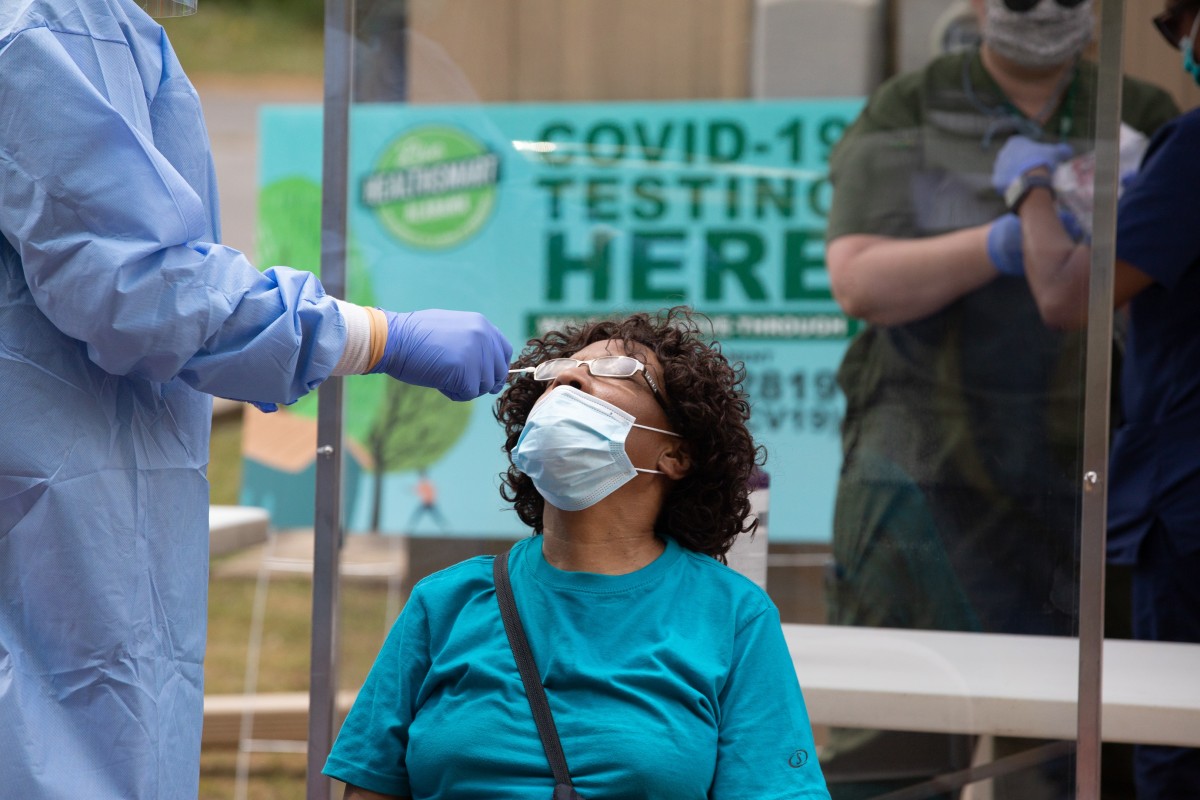COVID-19 has complicated everything about college — applications, classes, living arrangements and extracurricular activities. Some administrators are trying to help rural students succeed in a rapidly changing educational environment.
Shelby Acton graduated this spring from high school in Somerset, Kentucky, and plans to attend Eastern Kentucky University in the fall. It wasn’t a simple decision. She toured 11 colleges, eventually choosing one with an excellent elementary education department that offered her a significant scholarship. But with all the unknowns about how college life will look in the fall, she finds herself questioning her choice.

College access professionals across the country are concerned about the impact of the pandemic on rural student enrollment. Rural students graduate from college at lower rates than their urban peers. In a 2017 comparison of adults 25 and older, 34 percent of urban people had a bachelor’s degree or higher. Only 20 percent of rural people did, according to data from the U.S. Census Bureau.
Dreama Gentry is the executive director of Partners for Education at Berea College in Kentucky. Their mission is to ensure all Appalachian students succeed. The rate of bachelor’s degrees in their service area is less than 14 percent. One indication she sees that students might be rethinking college is a lower-than-normal application rate of the federal financial aid form, called Free Application for Federal Student Aid (FAFSA).
Financial concerns are huge with the often low-income, first-generation students they serve. With current economic uncertainty, college-bound students might be needed at home to work or care for siblings. If not, they still might be questioning whether the cost of college is worth it. Gentry is hopeful about efforts to double the Pell Grant, which provides funds for low-income college students.
For some families, there’s anxiety about health safety on campus. Some rural students would be moving from areas with relatively low COVID-19 infection rates areas to places with higher rates. Families also question how the school will work to prevent and handle an outbreak on the campus.
The college experience is about more than just academics. For many, college is a transition to independence and adulthood and the chance to live in a young adult community. Students like Acton are not as thrilled by an online class completed in their childhood bedroom. But rural students who delay their college education are likely to spend that year working and less likely than those in a college-going culture to hold onto their dream of further education.
Partners for Education coordinates a forum for national college access professionals to consider these challenges. The Rural College Access and Success Summit event is for sharing best practices and advocacy. In place of a 2020 event, organizers are hosting monthly themed web conversations with experts.
Andrew Moe, director of admissions at Swarthmore College in Pennsylvania, was one of the experts in June. He pointed out that in a time of uncertainty for students and parents, compassion and communication from colleges are crucial. They need to inform students about financial aid and COVID-19 procedures and then listen and be prepared to offer reassurance and options.
Moe also sees standardized entrance testing as a potential barrier for rural students. The SAT has reduced test sites and will not offer an at-home version. He suggests it might be time for colleges to make test scores optional, at least on a temporary basis.
While uncertainty haunts incoming freshmen, Moe explained that high school students graduating in the next few years will also be affected. So much of the college search process is in-person: meetings with school counselors, college fairs, visits, tours and interviews. On many campuses this fall, that will not be the case.
Moe is co-leader of another national resource, the Rural Special Interest Group (SIG) of the National Association for College Admission Counseling. This network of 1,600 members connects college admission staff and rural high school guidance counselors to increase rural college access. The SIG began creating and sharing college spotlights this spring, highlighting how the schools support rural students. Guidance counselors in the network can share these informational clips with students and families in place of campus visits.

Moe stresses the crucial role of these guidance counselors and supportive adults in rural communities. These advocates keep students informed and motivated and are the squeaky wheel on behalf of their students with college staff.
Partners for Education places counselors in rural Appalachian high schools and they are these kinds of advocates. Thanks to their familiarity with students, they can reach out personally and individualize their contact, knowing the best way to communicate with each student.
There are also signs of hope. Partners for Education usually hosts in-person summer opportunities for high school students on college campuses. While those have been canceled, Gentry says they have more students signed up for this summer’s online Upward Bound program than attended in person last year.
Moe sees some long-term possibilities for changes. The work many colleges are doing now, creating remote campus visits and instigating virtual meetings, will actually benefit rural students in the long term, enabling their exposure to a number of schools without extensive travel.
Moe hopes that awareness and thoughtful interventions will encourage students like Acton to persevere in their college pursuits. “Rural perspectives are valuable and create really deep dimensions within our classrooms,” he says. “I know how transformative education can be.”
Interested readers can sign up for the Rural Summit: Conversations for Action and join the Rural SIG.
This piece was originally published by the Daily Yonder.



